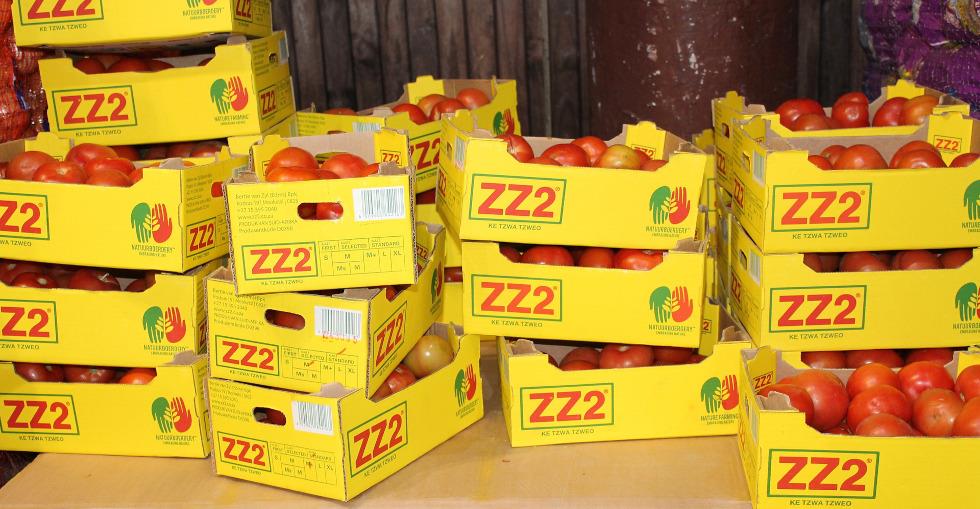Wholesale cash-and-carry and distributors play a crucial role in distributing products to South African retailers, both formal and informal. It is an industry that pursues high margins and maintains efforts to capture more businesses, especially in the major economic hubs of Johannesburg, Durban and Cape Town and Gqerbeha (Port Elizabeth).
If you are running this type of business, two factors which are often overlooked are maintaining a consistent cash flow and regularly securing stock. To stay in business you need to make sure you have enough cash flow to regularly purchase stock. Some options to maintain stock are:
- You can find the products you want to import online.
- Search online for the manufacturers of the products you want globally or locally, and arrange a meeting.
- You can also attend trade shows locally or outside of the country.
Staying competitive through market analysis
To stay competitive you need to know what your competition is doing right and how you can leverage this research to grow your business.
You need to conduct an in-depth analysis of your competitors if you are going to succeed. Look at their range of products, how they compare to your products in their ability to perform their necessary function, the quality of the product, price, ease of purchase and delivery. Thereafter, you can look into the type of customers they seem to attract and lastly how they are marketing to their prospective clients.
It can help to keep a spreadsheet with information about what you have learned about your competitors in areas like quality, price, affordability, delivery time, customer service and any other qualities you may find relevant.
Acquiring equipment
Generally, you would need office equipment and some basic warehouse equipment, like a laptop and cellphone contracts to maintain efficient communication. You can get a contract with a phone for R250 to R2,500.
You’ll also need management software to keep track of inventory and other operations. You could use Upkeep or EZ Office Inventory.
Advice on managing inventory
- Create an all inclusive inventory count program
- Have an accurate figure of what you currently have in stock
- You need to develop a comprehensive plan for your warehouse
- Be strategic about the way you store your inventory
- If you have items that are often bought together by customers keep them near to one another
In terms of warehouse equipment, it would be a good idea to get a forklift. This could range between R150,000 and R200,000. If the products you are selling come in pallets, then it is probably a good idea to purchase a pallet stacker which would cost an estimate of R51,000.
Cost considerations for maintaining your premises
It is important that you select the correct property to run your business. If you are going to see clients you may want an office area and even a board room.
When deciding on a warehouse space it is important to consider how fast you may grow. If you are looking to start on a small scale you could look at a small storage unit. Alternatively, if you have the financial means, you could purchase or rent one.
Interesting distribution facts
Johannesburg is one of the biggest commercial hubs of South Africa. It has the continent’s largest international airport which can handle 20 million passengers and 400,000 metric tons of cargo annually.
Durban is home to one of the busiest and most well-equipped ports in the southern hemisphere.
The Gqeberha (Port Elizabeth) Container Terminal is one of the three specialized container-handling facilities along the South African coastline. The terminal handles approximately 1,271 ships, and has a total tonnage of 25,756,823!
Setting goals
It is imperative to set goals for your business relative to what you want and in line with your company’s vision and mission. Hold yourself accountable and evaluate your goals. Evaluate your progress on a regular basis.
Marketing your business
If you have existing customers you could get new business through referrals. It is vital for every business to have a social media presence and for these pages to update content on a regular basis. Some content ideas you can use are the following.
- Updates on pricing, new products, product features in the form of graphics or videos
- Clients testimonials, or behind-the-scenes footage of your business in action
It is also important to create regular social media adverts which go out to a target audience.
Printed media
Printed media isn't as relevant as it used to be, however in some industries it is still held in high regard. If your product is in a certain niche, it would be advisable to get your brand out in printed newspapers dedicated to wholesale and distribution.
Business networking events
A great way to secure business is to join a business networking forum.
- BNI South Africa is a networking platform that is based across the country
- There are also a number of smaller networking forums, such as the Fourways Chamber of Commerce
Financing your business for expansion and growth
You may need capital for growth and expansion. Here are some recommendations:
- SAMAF - South African Micro Finance Apex Fund: SAMAF provides financial services to entrepreneurs located in rural or outer-urban areas
- Stokvels: a stokvel (stock fairs) is a unique, South African concept. It serves as a rotating credit union, where members of the community come together and contribute a fixed amount of money on a weekly or monthly basis. There are approximately 800,000 stokvels in South Africa.
- SEFA: the Small Enterprise Finance Agency provides loans to SMEs up to a maximum of R5 million.
- BBSDP - Black Business Supplier Development Programme: a cost-sharing grant that can lend a maximum of R1 million to small, black-owned enterprises
Employee considerations
If you want to expand your wholesale and distribution business, or need more hands to move heavy products, including increasing shipments, you’ll need to the following employees:
- A warehouse manager: R60,000 to R120,000 per year.
- Truck driver: R120,000 to R220,000 per year.
- An accounting firm: from R3000 a month
- You can pay your sales staff a basic salary with commission: R120,000 per annum to R360,000 per annum depending on the industry. A typical commission is 5% to 20 %.
Employee benefits
-
Medical aid
- R400 to R3000 depending on the plan.
-
Car Allowance
These can range from R3000 per month to R10,000 per month for non-executives.
- Unemployment insurance fund: in South Africa, employers are required to pay 1% of the employee's salary towards UIF. Employers are required to pay 1% of the employee’s salary towards a skills development levy.
Exit strategy
At some point, you will want to exit your business and could plan to sell it to a competitor or someone else who is passionate about the industry.
Perhaps you are passionate about the business and do not want to fully exit, in which case you could sell some shares and retire from your executive position when you are ready, while still maintaining involvement in the business.
Regardless of your circumstance, exiting a business requires preliminary research. Most importantly, you'll need to conduct a pragmatic valuation of your business to pitch to potential buyers.
Likewise, you'll need to hire an advisory team that can help you pursue the sale, including advising you on strategies to negotiate the deal terms.



